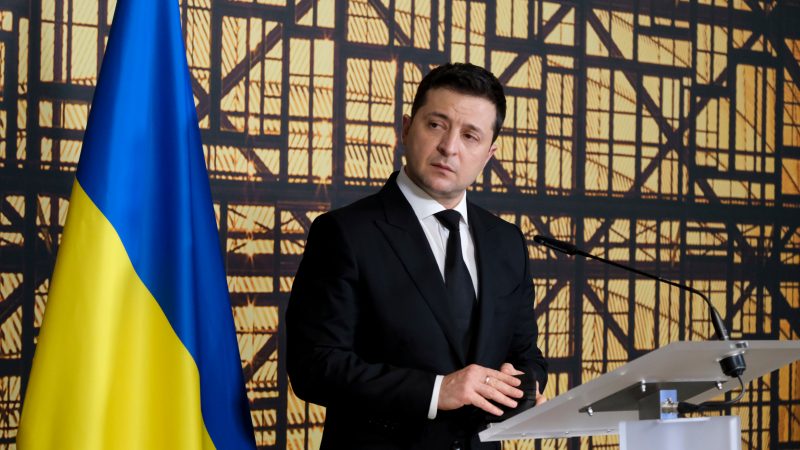
Prime Minister’s Questions is the most combative and theatrical part of the Westminster week. The leader of the opposition and the Prime Minister trade barbs and accusations while MPs bray, cheer and boo. Not so this week: with President Volodymyr Zelensky visiting the UK to deliver a speech in Westminster Hall following the session, Keir Starmer and Rishi Sunak limited themselves to a series of polite exchanges about the logistics of the UK’s support for the Ukrainian war effort.
“Across this House, we must speak with one voice and say this terrible conflict must end with the defeat of Putin in Ukraine,” Starmer said, setting the tone for the debate. Sunak agreed, telling MPs: “Putin’s aggression cannot in any way be seen to be successful.” They went on to discuss the provision of Challenger tanks and the training being offered to the Ukrainian army and air force by the UK.
Starmer referenced his previous work on Serbian war crimes at The Hague and asked Sunak whether he agreed that “when this war is over, Putin must stand with all his cronies and face justice at The Hague”. The Prime Minister agreed and highlighted the UK’s record providing “financial and technical support for investigators on the ground” so that those who have perpetrated “horrific crimes” can be held to account.
Starmer emphasised the importance of the UK’s commitment to NATO. “The Labour Party helped found NATO,” he said. “And our commitment to NATO is as unshakable today as it was back then.” These comments echo those made yesterday by Shadow Defence Secretary John Healey in his speech to the Royal United Services Institute (RUSI) think tank, in which he said NATO has Labour’s “fullest support”. The Shadow Foreign Secretary David Lammy made similar comments in a recent speech to the Chatham House think tank. Lammy outlined Labour’s aspiration to be “NATO’s leading European power” and twice described the party’s commitment to NATO – as Starmer did this afternoon – as “unshakable”. The complete and oft-proclaimed support for NATO under Starmer’s leadership stands in stark, and no doubt deliberate, contrast with the more ambivalent approach of his predecessor Jeremy Corbyn. A long-time critic of the defence organisation, Corbyn in 2022 said he would like to see it “ultimately disband”.
Desire to put aside day-to-day politics to show solidarity to President Zelensky and the people of Ukraine was cross party. Liberal Democrat leader Ed Davey asking the Prime Minister whether the UK would proscribe the Wagner mercenary group, a move he termed “a crucial part of treating Russia as the rogue state it is”. Sunak responded that while the UK had “sanctioned the Wagner group in its entirety, as well as taking specific action against its leaders”, proscriptions were not usually commented on in public. The SNP’s Westminster leader Stephen Flynn did go off script to ask Sunak whether he regretted the time in office of his predecessor Liz Truss. Smiling, Sunak commented that he was grateful for the contribution of all of his predecessors. This interlude aside, the overall tenor of the debate was solemn and unified.



More from LabourList
‘Frank’s poverty mission lives on at his charity – but he’d scrap two-child cap’
‘I disagreed with Frank Field, but he was no Tory and I loved him all the same’
Frank Field and David Marquand: Tributes flow in to ‘social justice crusader’ and ‘giant of social democracy’